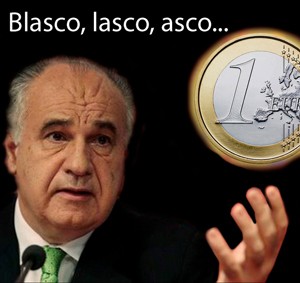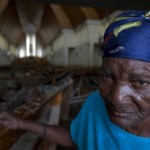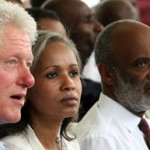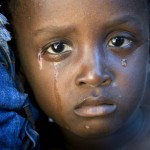Aid-Money Laundering as an NGO Racket
Dady Chery
Haiti Chery
It took the January 12, 2010 earthquake in Haiti to expose the rot in the world’s charities. Well-meaning people and their governments donated about $12 billion dollars of emergency aid, virtually none of which reached individual Haitians. The funds that were delivered went mostly to enrich the donor countries’ government agencies, aid agencies and non-governmental organizations (NGO). Furthermore, the vast majority of the pledged funds were never delivered at all. Much of the missing money was embezzled. Two criminal cases in 2015 give a glimpse into the use of NGOs by criminal networks to launder embezzled aid money.
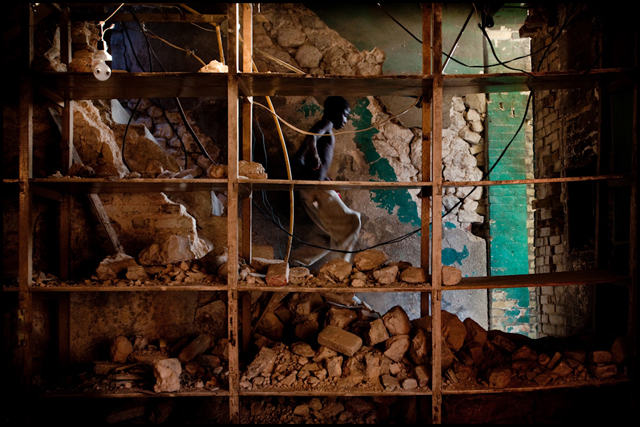
Aid, Mediterranean style
Rafael Blasco, one of Spain’s longest-lived and most indestructible politicians, became the first person to serve time for stealing Nicaraguan and Haitian reconstruction funds. He began a six-and-a-half-year prison sentence on June 15, 2015 for committing embezzlement of public funds, administrative prevarication, and forgery while he was the Director of the Aid Ministry in Valencia’s regional government. The English-language press ignored this news. In Spain, however, the “Aid Case” was a major scandal that the media followed for three years, until May 2015, when the Spanish Supreme Court denied Blasco’s final appeal for clemency.
According to a Valencia High Court and the Spanish Supreme Court, Blasco received his sentence for running a criminal ring that had syphoned off all but 3 percent of a $2 million aid package. That aid should have brought water and sustainable food to two poor rural areas of Nicaragua. This was only one part of the three-part Aid Case, which involved a total of $10 million and irregularities in 30 humanitarian projects in Central America and the Caribbean, Africa, and Asia. Another important part of the Aid Case was the planned construction of a hospital in Haiti after the 2010 earthquake for $5.1 million, but it turned out that there was sufficient evidence in the Nicaragua part to convict Blasco.

To solicit and syphon off the funds, Blasco formed and ran a criminal ring composed of members of Valencia’s Aid Ministry and various NGOs. In the Nicaragua part of the Aid Case, the NGO was called the Cultural and Social Studies Foundation (Fundación CYES). Its president, Marcial Lopez, and his wife, Maria Jose Cervera, were both convicted. Other members of this crime ring included a businessman, Augusto Cesar Tauroni, who was sentenced to six years in prison; the former Secretary General of Valencia’s Aid Ministry, Agustin Sanjuan, who was also sentenced to six years in prison; and the former Under Secretary of the Aid Ministry, Alejandro Catala, who was sentenced to four and a half years in prison.
The criminal conduct began in August 2010 when Rafael Blasco, as the Director of Valencia’s Aid Ministry, pressured a committee to grant the $2 million development subsidy to Fundación CYES despite the NGO’s application being previously rejected. Shortly thereafter, two members of the committee who had opposed the grant were fired; in addition, 25 percent of the amount of the grant was paid to the middleman Augusto Cesar Tauroni, for “advisory services, consulting, and engineering.” A court investigation could account for virtually none of the disbursed aid funds. Invoices were presented that were unrelated to the project; in one case the salaries of Nicaraguan workers were changed to euros instead of the local currency they were paid, to justify a monthly payroll of $5,100 instead of $71. In the end, 97 percent of the $2 million humanitarian aid to Nicaragua was laundered through Fundación CYES and then syphoned off into real-estate purchases in Spain’s Mediterranean region of Valencia.
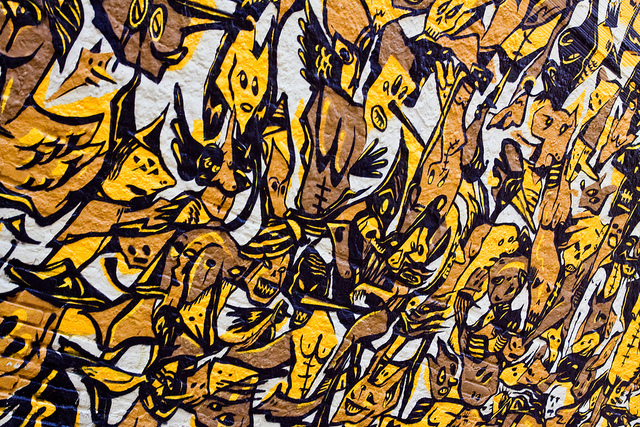
Details of the Haitian part of the Aid Case have not all been made public. The NGO associated with that particular case was called the Hemisphere Foundation (Fundación Hemisferio de la Comunidad Valenciana). It was directly run by Augusto Cesar Tauroni, and he received $225,000 from Valencia’s Department of Technical Advice. The Hemisphere Foundation has produced a quite polished Vimeo to promote the bogus modular hospital in Belle-Anse, a beach town in southeast Haiti about 80 miles from the earthquake epicenter. The video is a masterpiece of manipulation: it discusses “the poorest country,” shows plenty of earthquake rubble, disconsolate adults, hungry children, and includes a speech by Blasco himself (link to video is under Sources).
Rafael Blasco, who is nearly 70 years old, has been barred from political office for 20 years, and this is prudent. Over the years, Blasco had been remarkably creative in keeping high office despite accusations of corruption. He began his political career as a leftist in 1983. He switched to the right-wing party, Partido Popular or PP, after he was expelled from Spain’s Socialist Party in 1990 under suspicion that, as Minister of Planning, he had accepted bribes from real-estate developers to reclassify some lands. In PP, he became a close adviser to three successive regional presidents; he also served as the speaker of the regional parliament and the director of the Aid and Justice Ministries. Despite losing his position as Speaker of the Parliament when the Aid Case broke in 2012, he managed to keep his seat by becoming an Independent. It took the convictions from the Valencia High Court in 2014, and the Supreme Court decision to uphold them in 2015, to end Blasco’s careers in crime and politics.
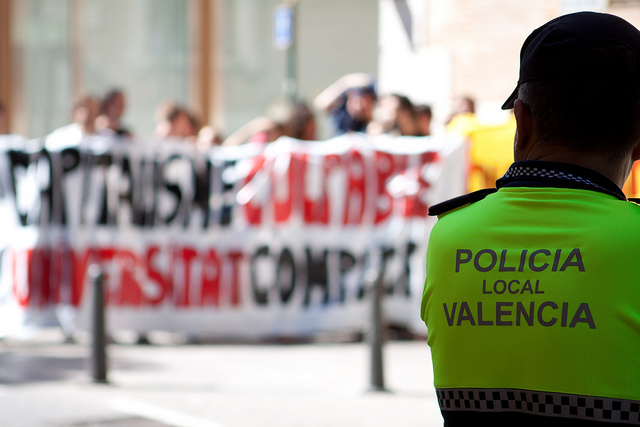
Humanitarian soccer
In the U.S., the case that caught the media’s attention was the accusation that Fédération Internationale de Football Association (FIFA) former official Jack Warner had diverted a $750,000 donation to Haiti for earthquake relief by FIFA and the Korean Football Association. It was an old allegation that was first made by the Trinidad and Tobago Football Federation in 2012, and then detailed in a 144-page Integrity Report by the regional soccer federation, CONACAF, in 2013. It made mainstream news headlines in December 2015 when an official U.S. government source repeated it. Specifically, after Warner’s close FIFA associate Jeffrey Webb pled guilty to racketeering conspiracy, wire fraud conspiracy, and money laundering conspiracy in December 2015, U.S. Attorney General Loretta Lynch announced a new set of FIFA indictments at a press conference. One part of the indictment said that “certain of the defendants and their co-conspirators, including the defendant Jack Warner and Jeffrey Webb, took advantage of these opportunities and embezzled or otherwise personally appropriated funds provided by FIFA, including funds intended for natural disaster relief.”
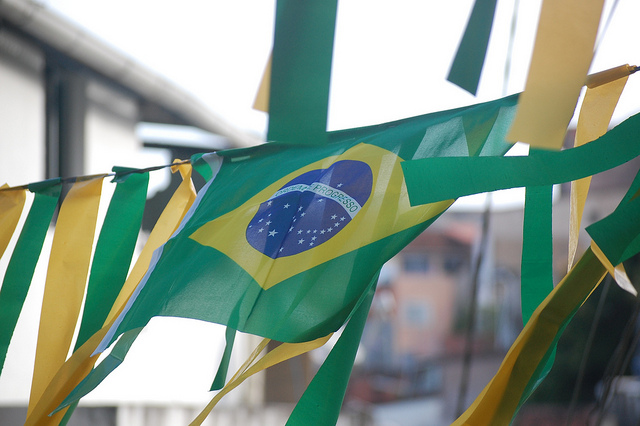
Like Blasco, Jack Warner is a government official: the representative for Chaguanas West in Trinidad and Tobago’s parliament. To continue the analogy to the Blasco case, the NGO here would be FIFA, which is not renowned for its virtue. Warner has denied the charges against him, and he seems certain that the case will go his way. After all, it involves not only funds for Haiti but also a larger probe that alleges the receipt of bribes from various governments and syphoning off of more than $10 million from FIFA. Talk of Warner being extradited to the U.S. quieted completely after he began to cooperate with the investigation and threatened to implicate his own government. It is likely that the part of the case that involves Haiti will never come to light. The U.S. is more keenly interested in former FIFA President Sepp Blatter and what he has to tell them about the corruption of high-level officials in the world: particularly those in governments that are cool toward the US.
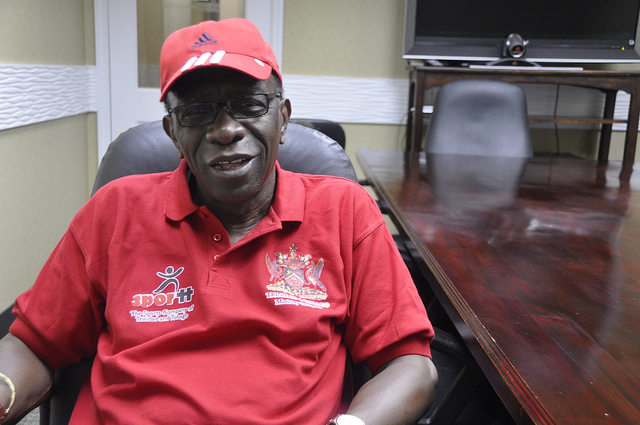
Digging out the truth
The mainstream press could have quoted any number of accusations against Warner involving a lot more money than disappeared from the donation to Haiti, but Haiti served it well in this case. The Haitian aid fiasco has become a button that can be pushed at any time to elicit anger from Americans about those who abuse their goodwill and steal emergency aid funds. There has never been any serious interest from the law in exposing or punishing those who have allegedly enriched themselves and their friends with aid money from Haiti. If there had been, the Interim Haiti Recovery Commission (IHRC), a group of businessmen led by Bill Clinton who forced a state of emergency on Haiti and managed the country’s supposed reconstruction for the 18 months immediately after the earthquake, would have got the attention of the US Justice Department by now. So much for the mainstream. One might also ask why the US alternative press, which makes a yearly ritual of searching through Haiti’s rubble for the country’s reconstruction funds on the earthquake anniversaries, has been mum about Rafael Blasco and Jack Warner. Generous explanations are earthquake fatigue and the U.S. elections, but this might well be a matter of professional courtesy: the U.S. alternative press are themselves mostly NGOs that depend on aid agencies and large charities.
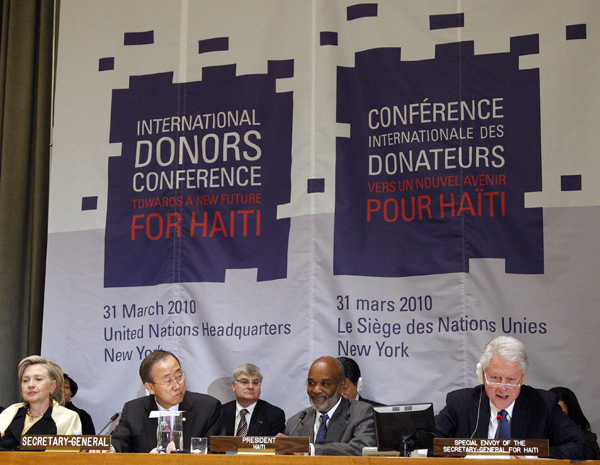
Sources: Haiti Chery | Dady Chery is the author of We Have Dared to Be Free. | Hemisphere Foundation Vimeo (Blasco speech at 9:10 min)| Video of Blasco entering prison | Image one from Antonio Marin Segovia; photographs two by Zoriah, three to five by Claudio Cesarano, six and seven from BBC World Service, eight from UNDP.

